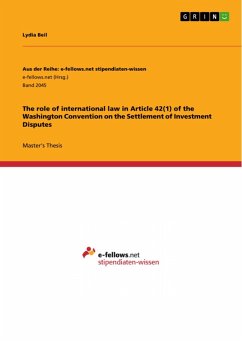Seminar paper from the year 2015 in the subject Law - European and International Law, Intellectual Properties, grade: 1,3, Maastricht University, course: International Commercial Law, language: English, abstract: One of the main constraints on cross-border commerce has always been diverging national legal regimes. With the emergence of globalization starting in the last century it became evident that there is a need to approximate the existing rules to foster international trade. In theory, this should allow all participating actors to benefit more than ever leading in the long run to greater wealth for everyone. In 1980, 42 countries agreed on the CISG to address hindrances to the growing international trade by adopting a default uniform international framework for the sales of goods. The preamble specifies that "the adoption of uniform rules which govern contracts for the international sale of goods and take into account the different social, economic and legal systems would contribute to the removal of legal barriers in international trade and promote the development of international trade". At the time of writing, the CISG has been in force for 27 years and it is time to evaluate whether the goals the drafters had in mind have been achieved. In order to assess the successfulness of the CISG to promote a unified international sales law a multitude of factors can be taken into account. To not unduly exceed the limits of this paper the author determined three key criteria on whose basis the successfulness will be evaluated. Firstly, the acceptance of the CISG in the international community will be evaluated. Secondly, the influence of the CISG on subsequent international, regional and domestic legislation and initiatives relating to sales and contract law will be addressed. Lastly, after determining the scope of application the paper focuses on the CISG's capacity to safeguard and foster its uniform application.
Dieser Download kann aus rechtlichen Gründen nur mit Rechnungsadresse in A, B, BG, CY, CZ, D, DK, EW, E, FIN, F, GR, HR, H, IRL, I, LT, L, LR, M, NL, PL, P, R, S, SLO, SK ausgeliefert werden.









